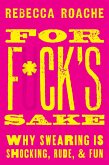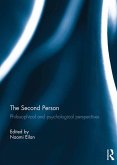Why do we love to swear so much? Why do we get so offended when others do it? With wit and insight, philosopher Rebecca Roache seeks answers to these and other puzzling questions about bad language. When someone swears at you, it can sting. Likewise, sometimes there is no better way to make the point you're making--emphasize, insult, or just plain offend--than to use a swear. What explains the magical power of swearwords? Why are they so good at offending people? To understand swearwords' power, we need to look beyond the words themselves--beyond the way they sound and what they refer to--and consider more generally what we do when we swear. In this lively and amusing exploration of the various puzzles that surround swearing, philosopher Rebecca Roache argues that what makes swearing offensive is not really the words at all: the offensiveness lies in what we don't say. The unspoken--and usually unconscious--inferences that speakers and listeners make about each other are key to explaining swearwords' capacity to shock. Swearing is unique among etiquette breaches in that it is designed to convey disrespect--swearing packs more of a punch than failing to say ?please?. Roache helps readers understand how swearing works, celebrating its power as a communicative tool and source of humor while also taking a close and serious look at specific words--those directed at women and women's bodies, for example--that function in particular, complex ways. She also examines the often-hypocritical ways swearing can be punished or censored. Along the way, she clears up a few puzzles, including why people are more tolerant of
f*** than of
fuck, and why quoted swearing is less offensive than unquoted swearing. Finally, Roache helps readers appreciate that swearing isn't always bad. When it's not used offensively, it can foster social intimacy, can help people withstand pain, and might even help us curb our violent impulses. Even the offensiveness of swearing is valuable. Being able to cause offence by swearing is an important way of being accepted and respected as equals by other people.
Dieser Download kann aus rechtlichen Gründen nur mit Rechnungsadresse in A, B, BG, CY, CZ, D, DK, EW, E, FIN, F, GR, HR, H, IRL, I, LT, L, LR, M, NL, PL, P, R, S, SLO, SK ausgeliefert werden.









